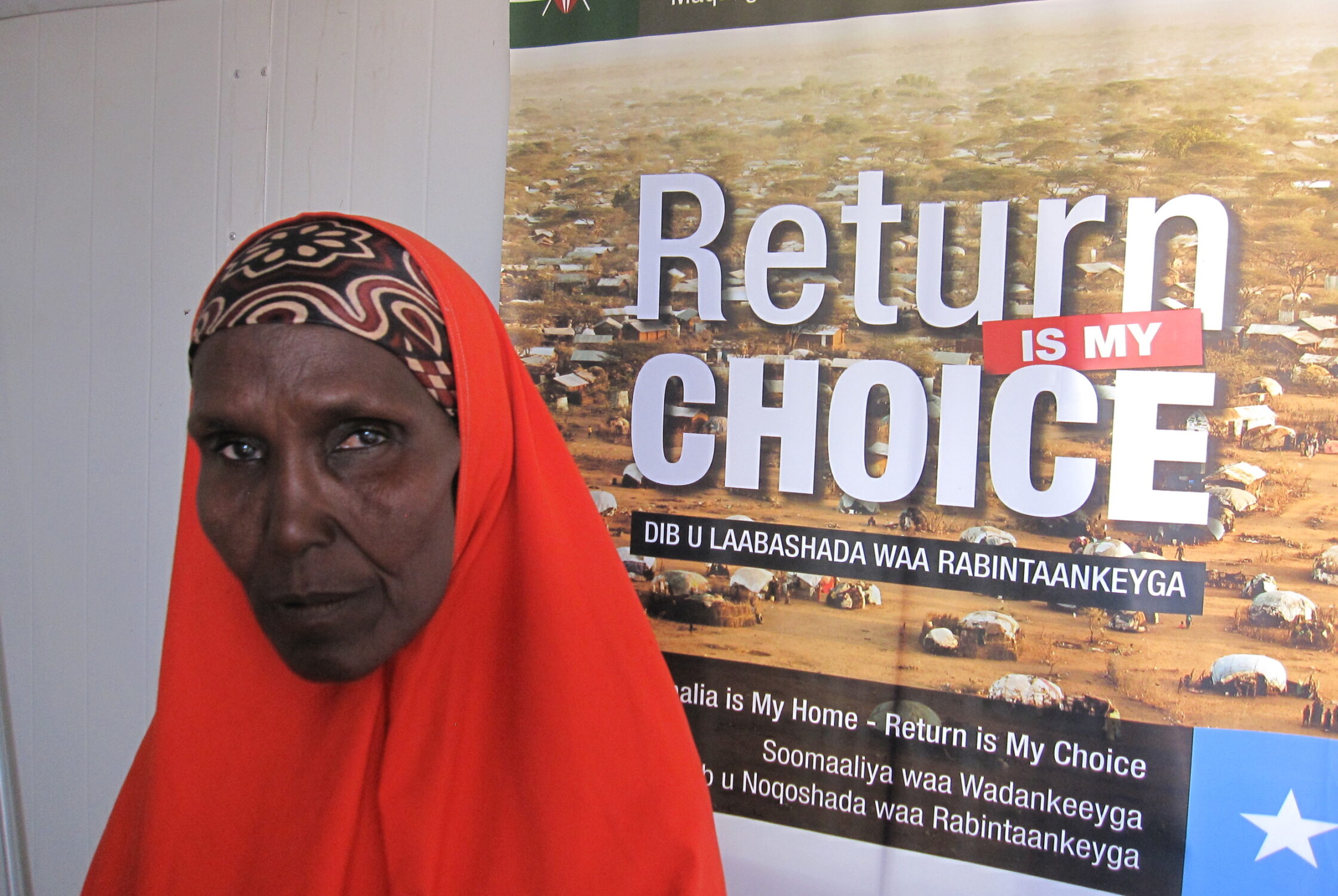Keeping Refugees on the Agenda for Obama’s Africa Visit

Earlier today, I was in touch with a Somali friend, Farah, who has been living as a refugee in Kenya’s capital, Nairobi, for the past several years after he fled fighting in Somalia. I asked him what he thought about President Barack Obama’s visit to Kenya this week. He said, “I am happy. I hope he talks about refugee rights.” He then said, “The talk of everyone in Nairobi is that the most powerful man on earth is coming to Kenya.”
Indeed, the expectations for Obama’s Africa trip, which includes a stop at the African Union in Ethiopia, are sky high, and the agenda is extensive. Obama’s visit to Nairobi deliberately coincides with the Global Entrepreneurial Summit, and so expanding trade and investment between the U.S. and Africa is a top priority. Obama is also expected to engage bilaterally with African leaders on issues ranging from stemming wildlife trafficking to countering terrorism to resolving the war in South Sudan.
For the sake of Somali refugees like Farah, let’s also hope that refugee rights are on the agenda. For years, Somali refugees in Kenya have faced abuse and extortion at the hands of Kenya’s security services. However, as Kenyan government officials have sought to link the broad refugee population with the threat of terrorism, police have used this as leverage to detain, abuse, and extort money from refugees at unprecedented levels.
The talk of everyone in Nairobi is that the most powerful man on earth is coming to Kenya. I hope he talks about refugee rights.
Farah, Somali refugee in Kenya
There is no question that Kenya faces a real terrorism challenge. Amongst a series of smaller attacks, in September 2013, the Somalia-based group Al-Shabab launched an attack on the Westgate Mall in Nairobi, killing 67 people. In April of this year, the group laid siege to Garissa University College in northeastern Kenya, killing 148 people.
In response, Kenyan officials have turned their attention toward Somali refugees, many of whom themselves fled to escape violence and persecution from Al-Shabab. In March 2014, citing ‘emerging security challenges in urban areas,’ the government ordered refugees residing in cities to the Dadaab and Kakuma refugee camps in northern Kenya and moved to forcibly relocate people. The government subsequently launched a security operation known as Operation Usalama Watch that involved constant raids on Somali neighborhoods in Nairobi over the course of several months.
During an assessment in Nairobi last year, I interviewed refugees who had been accosted in the middle of the night by police demanding they pay bribes to avoid arrests. Those who lacked means to pay were thrown into trucks and taken to overcrowded prison cells, where they were detained for weeks. The conditions in the cells were deplorable, with men, women, and children confined together, forced to sleep on the floor, and denied access to a toilet. Physical abuse by policed was also reported.
After Usalama Watch the situation calmed somewhat. But following the Garissa attack, Kenyan officials again turned the spotlight on Somali refugees. Most notably, Vice President William Ruto called for the closure of the Dadaab refugee camp – home to more 350,000 refugees, mainly Somali – within three months. Fortunately, calls to close the camp have been scaled back. But a clear message has been sent to refugees that they are no longer welcome in Kenya, and the UN Refugee Agency (UNHCR) is now under enormous pressure to expand and expedite its returns program for Somali refugees despite a continuing humanitarian and security crisis in south-central Somalia.

During visits to Kenya, many refugees have told me that they felt abandoned by the international community in the wake of threats and violations against their protection and asylum space. Muted public criticism against Kenya’s actions by UNHCR and by donor governments was palpable. Therefore, it was significant when, on his trip to Kenya in May, U.S. Secretary of State John Kerry met with members of the refugee community, spoke publicly about refugee rights, pledged an additional $45 million in aid for refugees in Kenya, and received assurances from Kenya’s President, Uhuru Kenyatta, that any refugee returns would only be on a voluntary basis.
Fortunately, the situation in Kenya has been calm for the past few months. However, in my interviews and meetings with everyone from Kenya analysts to Somalia officials to refugees themselves, a common prediction is that when (not if) another terrorist attack occurs in Kenya, the government and its security services will likely again unleash a response that brandishes the entire Somali community as terrorists and that serves to exploit divisions, rather than bring people together.
President Obama’s trip to Kenya therefore represents a critical opportunity to engage President Kenyatta on this issue in private meetings and urge the Kenyan government away from tactics that harm those who came to Kenya seeking asylum and protection. But the trip is also opportunity to build on Secretary Kerry’s public messaging and to reiterate U.S. support for refugee rights. The U.S. has in no way abandoned refugees in Kenya, and President Obama must say so.